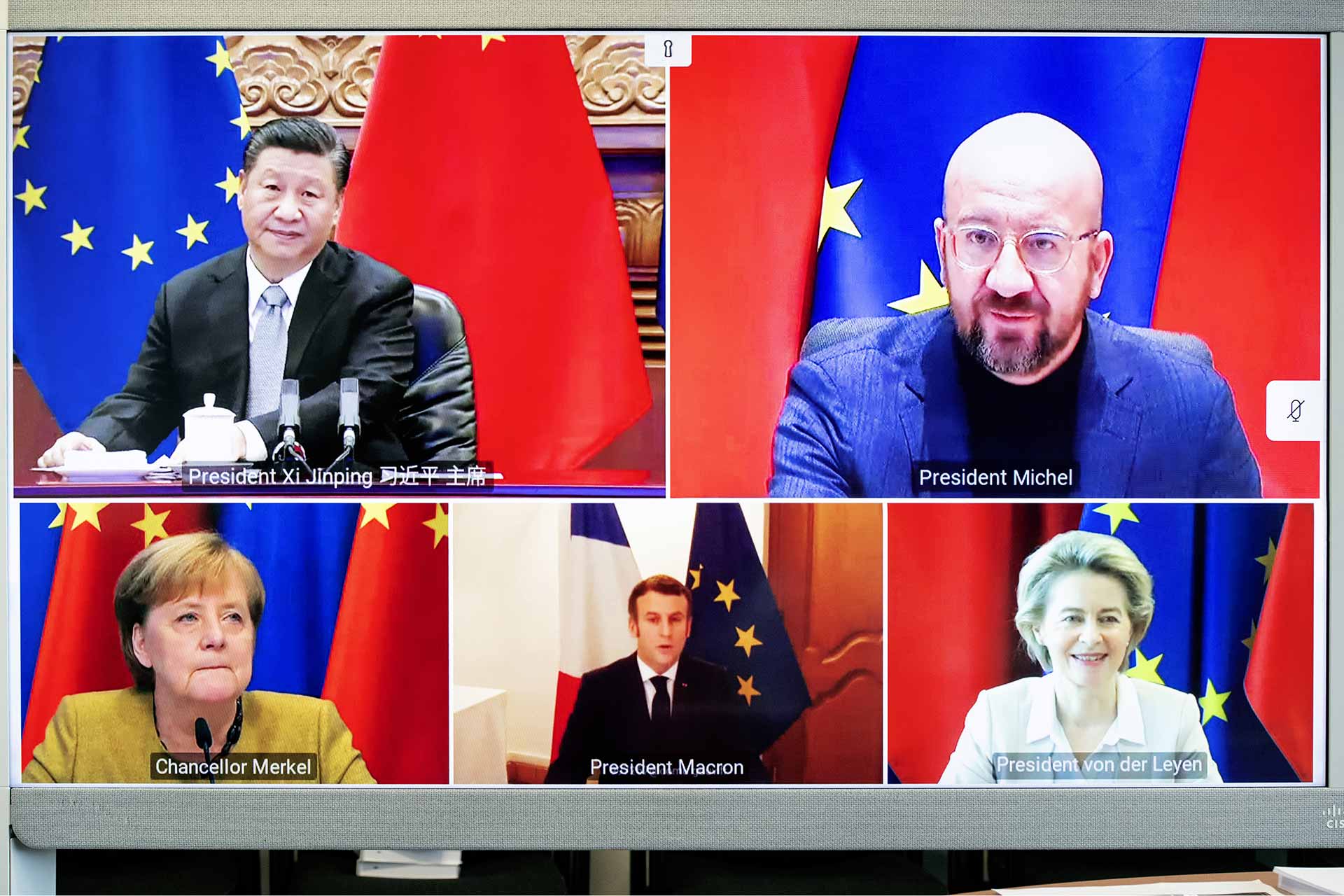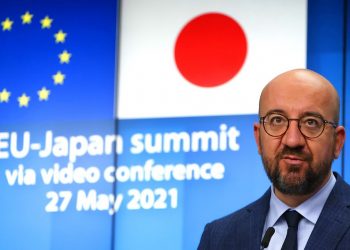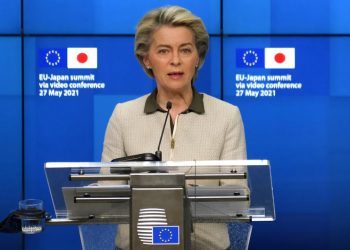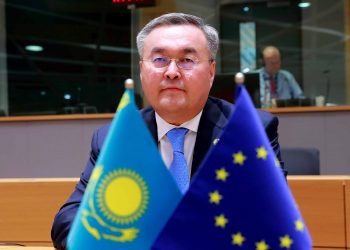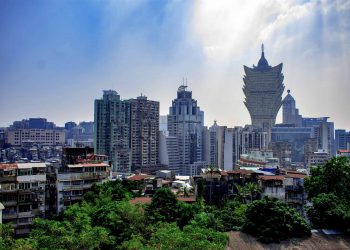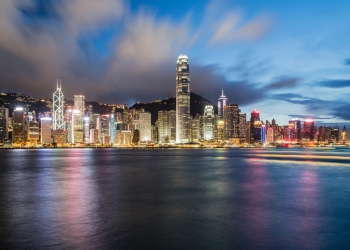The EU and China have concluded in principle the negotiations for a Comprehensive Agreement on Investment (CAI). This deal follows a call between Chinese President Xi Jinping and European Commission President von der Leyen, European Council President Charles Michel and German Chancellor Angela Merkel on behalf of the Presidency of the EU Council, as well as French President Emmanuel Macron.
China has committed to a greater level of market access for EU investors than ever before, including some new important market openings. China is also making commitments to ensure fair treatment for EU companies so they can compete on a better level playing field in China, including in terms of disciplines for state owned enterprises, transparency of subsidies and rules against the forced transfer of technologies. For the first time, China has also agreed to ambitious provisions on sustainable development, including commitments on forced labour and the ratification of the relevant ILO fundamental Conventions.
EU-China trade relationship
The Agreement on investment will create a better balance in the EU-China trade relationship. The EU has traditionally been much more open than China to foreign investment. This is true as regards foreign investment in general. China now commits to open up to the EU in a number of key sectors.
President of the European Commission, Ursula von der Leyen said: “Today‘s agreement is an important landmark in our relationship with China and for our values-based trade agenda. It will provide unprecedented access to the Chinese market for European investors, enabling our businesses to grow and create jobs. It will also commit China to ambitious principles on sustainability, transparency and non-discrimination. The agreement will rebalance our economic relationship with China”.
EU-China Comprehensive Agreement on Investment
The rules negotiated in this Agreement on investment set a high benchmark in terms of transparency, level playing field, market access commitments and sustainable development. The EU’s work on planned autonomous measures in areas such as subsidies or due diligence will continue as a matter of priority.
Today’s conclusion in principle of the negotiations is a first step in the process; deliberations for the adoption and ratification of the agreement are yet to take place and will be conducted in full transparency.
During today’s call, the leaders also addressed climate change, the COVID-19 pandemic, Hong Kong and human rights. They took stock of the overall EU-China agenda, recording important progress on a number of key issues, while serving to underline the EU’s continued expectations and concerns in other areas. The EU also raised the negotiations for the Strategic Agenda for Cooperation 2025, and proposed that negotiators from both sides should resume their work now that significant progress has been made in the CAI negotiations. The EU side recalled its invitation for President Xi to join an EU-China Leaders’ meeting with the participation of the Heads of State and Government of the EU member states to be held in Brussels in 2021.
Executive Vice-President and Commissioner for Trade, Valdis Dombrovskis, said: “This deal will give European businesses a major boost in one of the world’s biggest and fastest growing markets, helping them to operate and compete in China. It also anchors our values-based trade agenda with one of our largest trading partners. We have secured binding commitments on the environment, climate change and combatting forced labour. We will engage closely with China to ensure that all commitments are honoured fully.”
EU- China Comprehensive Agreement on Investment
Ambitious opening and level playing field for European investments
In terms of market access for EU businesses, China has made significant commitments on manufacturing, the most important sector for EU investment in China. Manufacturing makes up more than half of total EU investment – including 28% for the automotive sector and 22% for basic materials. This includes production of electric cars, chemicals, telecoms equipment and health equipment, among others.
China is also making commitments for EU investments in various services sectors, such as cloud services, financial services, private healthcare, environmental services, international maritime transport and air transport-related services.
In the sectors covered, European business will gain certainty and predictability for their operations as China will no longer be able to prohibit access or introduce new discriminatory practices.
The CAI will help to level the playing field for EU investors by laying down very clear rules on Chinese state-owned enterprises, transparency of subsidies, and prohibiting forced technology transfers and other distortive practices.
The agreement on investment also includes guarantees that will make it easier for European companies to obtain authorisations and complete administrative procedures. It also secures access to China’s standard setting bodies for European companies.
Embedding sustainability in EU-China investment relationship
The CAI will bind the parties into a values-based investment relationship underpinned by sustainable development principles. This is the first time that China agrees to such ambitious provisions with a trade partner. Amongst others, China is undertaking commitments in the areas of labour and environment such as not to lower the standards of protection in order to attract investment, to respect its international obligations, as well as to promote responsible business conduct by its companies. China has also agreed to effectively implement the Paris Agreement on climate change as well as to effectively implement the International Labour Organisation Conventions (ILO) it has ratified. China has also agreed to make continued and sustained efforts to ratify the ILO fundamental Conventions on forced labour.
Sustainable development matters will be subject to a solid enforcement mechanism by an independent panel of experts as in our other trade agreements. This means a transparent resolution of disagreements with the involvement of civil society.
EU foreign investment screening mechanism becomes fully operational
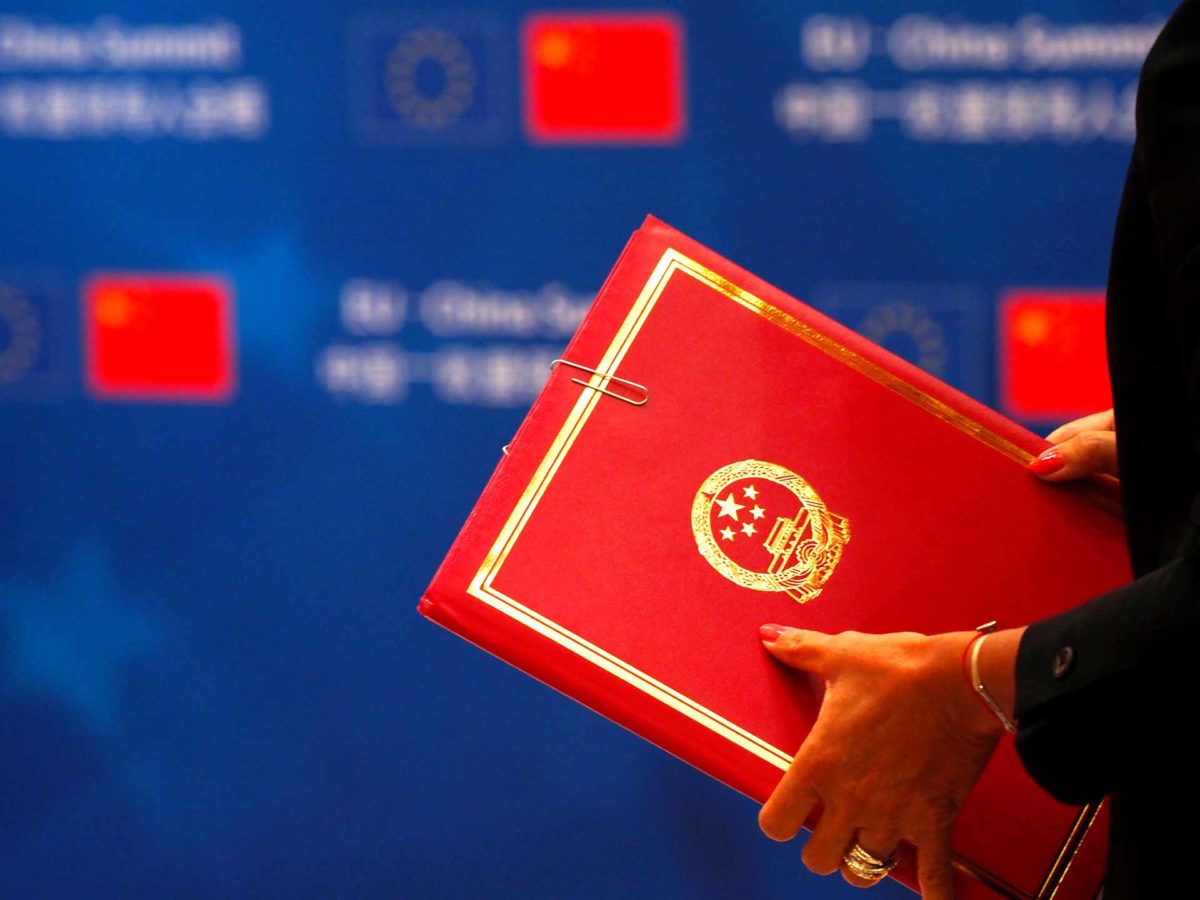
EU-China Deal enforcement
The implementation of the commitments in the Agreement will be monitored at the level of Executive Vice President on the side of the EU and Vice Premier on China’s side. The State-to-State dispute resolution mechanism underpinning the agreement meets the highest standards found in existing EU trade agreements. The Agreement on investment also creates a specific working group to follow the implementation of sustainable development related matters, including on labour and climate.
Continuation of negotiations on investment protection
The package deal reached today includes a commitment by both sides to try to complete negotiations on investment protection and investment dispute settlement within 2 years of the signature of the CAI. The common objective is to work towards modernised protection standards and a dispute settlement that takes into account the work undertaken in the context of UNCITRAL on a Multilateral Investment Court. The EU’s objective remains to modernise and replace the existing Member States’ Bilateral Investment Treaties with China.
Both sides are now working towards finalising the text of the agreement, which will need to be legally reviewed and translated before it can be submitted for approval by the EU Council and the European Parliament.
What are the benefits of the CAI for the EU?
- It will significantly improve the market access conditions for EU companies in China, in terms of predictability and new market openings; the agreement on investment will help to rebalance the current asymmetry in our respective market openness; it will help to level the playing field for our companies operating in China; it will promote sustainable development, including the respect of fundamental labour rights.
- CAI will provide for a formal and binding framework to discuss and address concrete problems our investors face in China as well as state-to-state dispute resolution if China does not comply with its CAI obligations.
What has the EU committed to in the CAI?
- Our commitments as regards transparency, level playing field, and sustainable development are rules and principles already embedded in EU law.
- On market access, our objective was to rebalance the existing asymmetry and bring China closer to us in terms of level of openness and level playing field, given China’s market is far less open that the EU’s.
- Our sensitive areas such as public services, critical infrastructure and technologies remain fully preserved.
What about negotiating a trade agreement between the EU and China?
- There is no authorisation from the Council of the EU to negotiate a trade agreement with China. It is important that we focus on delivering fully on the commitments that we have undertaken as part of our bilateral agenda before exploring additional means to enhance the bilateral trade and investment relationship.
- Apart from concluding the investment negotiations, we need to advance on strengthening international rules at multilateral level, notably on industrial subsidies.
How will the CAI address the issue of forced technology transfers?
- The rules consist of:
- direct prohibitions of forced technology transfers;
- prohibition of any state interference into the licencing of technology;
- enhanced protection of Intellectual Property sensitive business information and trade secrets in the administrative processes.
What did you achieve on State-Owned Enterprises (SOEs)?
- Consistent with our practice in trade agreements, the CAI requires from SOEs engaged in the market to act according to commercial considerations.
- That means that they should behave as any private business would, and not to discriminate against our companies in their sales and purchases.
- It also imposes transparency obligations if there are problems with the behaviour of SOEs.
- We will also be able to enforce these obligations, in case of breach, via the dispute settlement mechanism.
What are the rules on subsidies in the CAI and how does this relate to the WTO?
- The CAI improves the transparency of subsidies, essentially by extending the current WTO transparency disciplines for industrial goods to also cover services sectors.
- Transparency is a first step to tackle the distortive effects of subsidisation; the CAI is therefore an important piece of our efforts in this regard.
- In addition, it also establishes a two-stage consultation mechanism between the parties allowing to collect the necessary information to assess the effects of specific subsidies on the investment interests of a party.
- In the WTO, we aim to update the disciplines for industrial goods contained in the Agreement on Subsidies and Countervailing measures.
- Both processes in the area of subsidies, the provisions in the CAI and the WTO reform, are complementary and mutually reinforcing.
- These commitments do not affect the adoption of autonomous measures by the EU to address distortions in the European internal market created by foreign subsidies.

